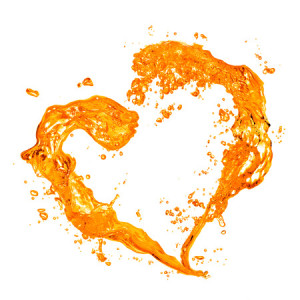 Most people would agree that pushing through the day with enough energy is a difficult task. Many of us struggle with fatigue from the time we roll out of bed until the time we collapse back on our pillows. Coffee used to be the only pick-me-up used to stimulate more energy and overcome exhaustion, but the beverage industry has expanded significantly in the last decade and given way to a host of other choices. Energy drinks in particular have soared in popularity, but what are they doing to your heart?
Most people would agree that pushing through the day with enough energy is a difficult task. Many of us struggle with fatigue from the time we roll out of bed until the time we collapse back on our pillows. Coffee used to be the only pick-me-up used to stimulate more energy and overcome exhaustion, but the beverage industry has expanded significantly in the last decade and given way to a host of other choices. Energy drinks in particular have soared in popularity, but what are they doing to your heart?
Coffee vs. Energy Drinks
The health benefits and consequences of drinking coffee have long been disputed, and now energy drinks are being added into that debate. According to Emily Fletcher, the lead researcher in a small trial that explored the impacts of energy drinks on the body, “Consumers should be aware that drinking an energy drink is not the same as drinking coffee or soda. There are differences.”
While coffee is obtained straight from naturally-grown coffee beans that offer caffeine but nothing more, energy drinks are man-made blends of caffeine, sugar, vitamins, amino acids, and herbal stimulants. Fletcher’s study sought to determine how the body reacts to energy drinks compared to coffee, which has been a societal staple for more than a century.
Energy Drinks Could Put the Heart in Danger
Fletcher’s study used 18 healthy volunteers between the ages of 18 and 40 and split them into two groups. The first group drank 32 ounces of an energy drink that contained 108 grams of sugar, 320 milligrams of caffeine, and different herbal supplements. The second group drank the same amount of caffeine without any of the other ingredients. Researchers then monitored the heart activity and blood pressure of all participants for the following six hours. A week later, the experiment was completed again by switching which drink each group received.
The results of the study revealed that energy drinks impact the heart in a way that increases the changes of abnormal heart rhythm, which can in turn increase the risk of heart attack or stroke. In fact, pharmaceutical drugs that have the same impact are required to have a warning label. In addition, the energy drinks also caused the study participants to experience prolonged elevated blood pressure.
Dr. Gordon Tomaselli, a spokesman for the American Heart Association, summarized these findings by explaining that adults with existing cardiac conditions are most at risk of suffering a major side effect from energy drinks. As Fletcher concluded, “I would recommend only moderate consumption of energy drinks, and particular avoidance in people with underlying cardiac disease or hypertension.”

 Patient Login
Patient Login